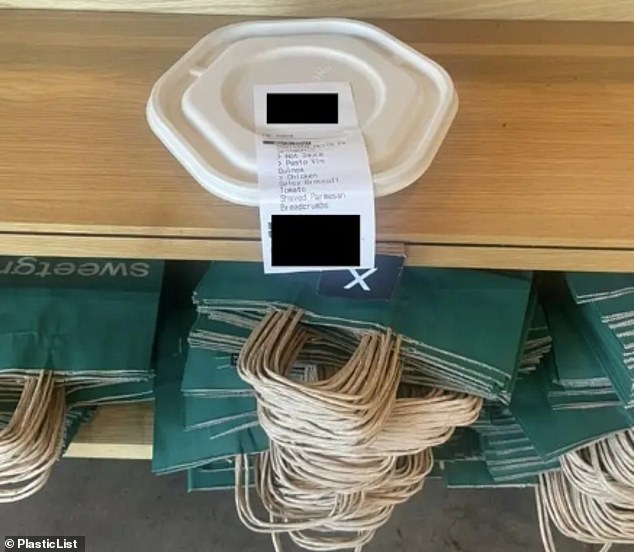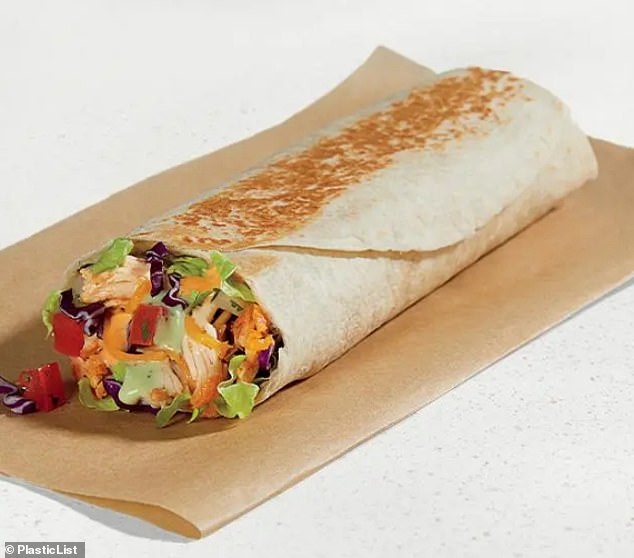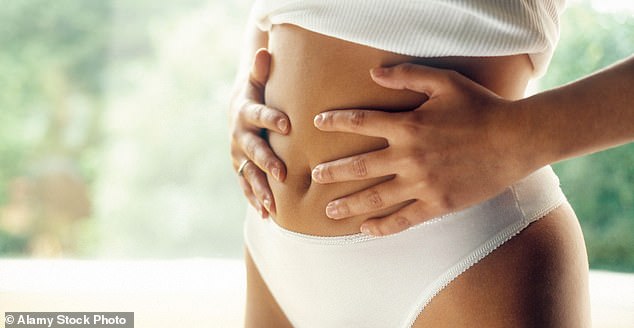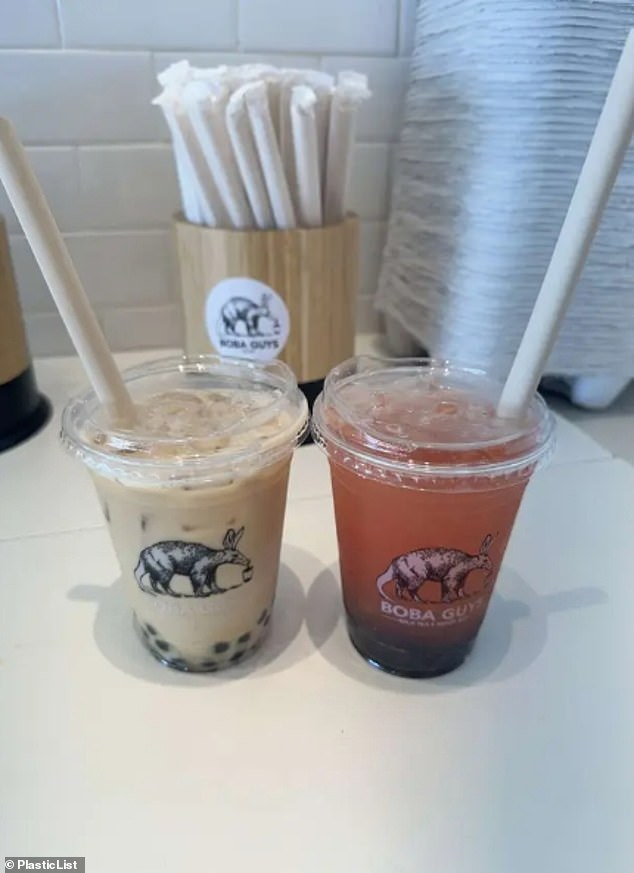Study reveals fast food products containing microplastics linked to cancer and autism… is YOUR favorite on the list?
Your favorite fast food might be the one containing microplastics linked to cancer, infertility and autism.
Researchers tested more than 300 foods sold in restaurant chains and supermarkets across America for two microscopic toxins.
They discovered that of all fast food chains, the salad chain Sweetgreen and Starbucks scored the worst.
Sweetgreen’s Chicken Pesto Parm Salad and Starbucks’ matcha latte were found to contain the highest levels of phthalates, a group of chemicals used to make plastics more flexible and transparent.
Shake Shack’s cheeseburger had the third highest rating, while Burger King’s Whopper with Cheese, In-n-Out’s ‘Animal Style’ cheeseburger and Taco Bell’s cantina chicken burrito also scored poorly.
Phthalates are often used in food packaging materials and are called “forever chemicals” because they do not break down once they enter the body, where they cause untold damage.
Studies have shown that they imitate the body’s hormones and disrupt the production and response to natural hormones such as estrogen and testosterone.
For their report, researchers from the group PlasticList purchased almost all of the samples directly from grocery stores and restaurants in San Francisco’s Bay Area.
An alarming study has revealed the vast amount of toxic plastics lurking in a range of popular foods and drinks, with fertility problems and cancer among the negative health consequences
Multiple samples of each product were purchased to obtain the most accurate results.
A total of 775 samples from 312 foods were tested for plastic chemicals.
To prevent contamination, all products were sent to a controlled testing laboratory in their original packaging.
After the tests, Sweetgreen’s chicken salad was considered the worst fast food product due to its high phthalate content.
According to the U.S. Environmental Protection Agency (EPA), daily exposure levels to phthalates – especially DEHP – are considered potentially hazardous, around 20 micrograms per kilogram of body weight per day.
Sweetgreen’s salad contained an average of 0.05 mg per serving (395 grams), just like Starbucks’ matcha latte.
While the researchers acknowledge that this is a small amount that is considered safe by current safety standards, they suggest that much of the data and research surrounding plastic toxicity is outdated.
Next, Shake Shack’s cheeseburger contained 0.04 mg of phthalates per serving, followed by Burger King’s Whopper with Cheese (0.03 mg per serving), Taco Bell’s Cantina Chicken Burrito (0.02 mg per serving), and In-n-Out’s cheeseburger ‘Animal Style’. (0.01 mg per serving).
Other fast food products with amounts of approximately 0.01 mg to 0.02 mg phthalates per serving include Wendy’s Dave’s Single with Cheese, Chipotle’s Burrito with Red Bean Veggies Chicken and Sour Cream and Chick-fil-A’s Deluxe Sandwich.
In total, the research team found phthalates in 73 percent of the 312 products they tested.
As part of the 18-month study, the researchers also tested items for bisphenol A (BPA), an industrial chemical used in the production of plastic and aluminum cans.
An Australian study published last year found that boys exposed in utero to the endocrine-disrupting BPA were six times more likely to be diagnosed with autism before the age of 11 than boys without exposure.
That team suggested that BPA – a product that produces plastic and metal food packaging – was linked to neurological and behavioral changes linked to autism.

Of all the foods tested, Sweetgreen’s Chicken Pesto Parm Salad was found to contain the highest amount of phthalates, with an average of 47,971 ng per serving (395 g).

Other foods with high concentrations of phthalates included Taco Bell’s Cantina Chicken Burrito (28,036 ng per serving)
Samples of 22 products, from suppliers ranging from Starbucks to Shake Shack to Whole Foods, exceeded the European Food Safety Authority’s (EFSA) intake limits for BPA in the new study.
The excess amounts ranged from 450 percent to 32,571 percent of the EFSA limits for an adult weighing 70 kg.
One of the worst offenders when it came to BPA content was Boba Guys’ ‘Boba Tea Beads’, which the PlasticList team said ‘well exceed the EFSA limit for daily BPA consumption’.
Boba tea, or bubble tea, is a drink that contains tapioca balls called boba.
According to the EFSA, the boba tea in question from Boba Guys is equivalent to 1.2 years of safe BPA consumption.
Several other Boba Guys teas were praised for their ‘unhealthy’ BPA content, while Wild Planet Albacore Wild Tuna was also named, as were several samples of tap water.
The researchers suggested that plastic pipes used in both individual homes and water supply regions could be responsible for the high BPA levels.
When it came to phthalates, all foods tested by PlasticList were considered safe to eat according to FDA, EPA and EFSA standards for chemical content in foods.
Although the levels of phthalates are considered ‘safe’, the PlasticList team says they are still a cause for concern and suggest that current safety limits are outdated.
For example, they emphasize that the EPA’s 2024 safety limit for DEHP is based on a 1953 study.
US food safety expert Darin Detwiler also told DailyMail.com that he finds the results of the plastic study “disturbing” and that consumers should take it into account.
He explains: ‘Toddlers are much more sensitive to even minor exposures due to their size and stage of development.
‘Most foods will not approach 1 percent BPA or DEHP (phthalates), but leaching from packaging into foods can cause low-level, chronic exposure that accumulates over time.
‘Reducing exposure to BPA and DEHP in food is especially important for toddlers, pregnant individuals, and people who consume large amounts of packaged or processed foods.’
Echoing the sentiments of Dr. Detwiler concludes the PlasticList team: ‘We came out of this project with the view that the current safety limits for plastic chemicals could be materially wrong.

Phthalates are often used in food packaging materials and are sometimes called “forever chemicals” because they do not break down once they enter the body.

According to the EFSA, one Boba tea is equivalent to 1.2 years of safe BPA consumption
‘The limits set by different agencies are contradictory, many have not been revised for decades despite advances in science, and real-world scenarios such as chemical mixtures are understudied.
‘We think there is enough evidence that plastic chemicals are bad for babies that this is worth a concern for parents, and further research by experts.’
The European Chemical Agency notes that several phthalates, including DEHP, DBP, DIBP and BBP, may damage fertility or the unborn child and disrupt the hormonal system.
In particular, they “affect the sexual development of boys, which can lead to infertility in adults.”
Meanwhile, the Agency for Toxic Substances and Disease Registry warns that adult animals eating DEHP showed testicular damage and liver and kidney damage, along with reduced fertility.
To further underline the harmful effect of phthalates and DEHP in particular, the government agency refers to various animal studies.
In reveals: ‘Adult animals eating DEHP showed reduced fertility, testicular damage and liver and kidney damage.
‘Pre-sensitized animals that ate or breathed DEHP showed increased allergies.
‘When animals were exposed to DEHP during pregnancy or early life, many effects were noted, including altered blood sugar levels and impaired development or function of the reproductive system, kidneys, liver or nervous system.’
It is not known whether DEHP can cause cancer in humans, but rats and mice that ate DEHP over a long period of time developed liver cancer.
Some animals also developed pancreatic and testicular cancer.
